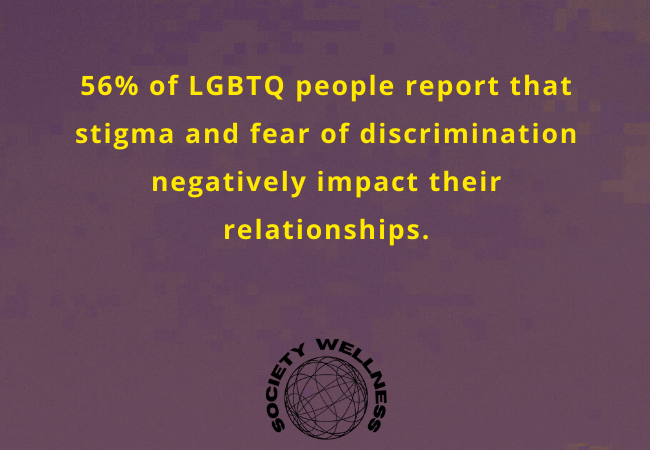All relationships encounter conflict. Whether it’s over communication, trust, intimacy, or life decisions, disagreements are a natural part of loving another person. But for LGBTQ couples, conflict is often layered with added complexities—external stigma, internalized oppression, gender dynamics, and more. That’s why affirming, culturally competent couples therapy is not just helpful—it’s often transformational.
At LGBTQ Behavioral Health Treatment Center Massachusetts, we specialize in helping LGBTQ couples navigate conflict with empathy, skill, and resilience through services like LGBTQ Couples and Marriage Counseling in Massachusetts, LGBTQ Therapy in Massachusetts, and structured support like our LGBTQ PHP Treatment and Intensive Outpatient Programs in Massachusetts. Whether you’re struggling with recurring arguments, rebuilding after a betrayal, or seeking tools to communicate better, queer-affirming couples counseling can help you move from tension to connection.
In this guide, we’ll explore how LGBTQ couples counseling supports conflict resolution, and why culturally affirming care makes all the difference.
Why LGBTQ Couples Face Unique Conflict Dynamics
LGBTQ relationships exist in a world that often questions, misunderstands, or marginalizes them. This context adds distinct emotional weight to disagreements that might otherwise seem minor.
Common challenges that influence conflict in LGBTQ relationships:
- Minority stress: Chronic stress from societal stigma, discrimination, or fear of rejection.
- Unequal outness: One partner may be open, while the other is closeted.
- Family rejection or religious trauma affecting emotional safety.
- Misgendering or deadnaming during conflict—sometimes unintentionally, sometimes as emotional weapons.
- Navigating gender transitions within a relationship.
- Cultural norms and internalized homophobia or transphobia.
These stressors don’t cause conflict—but they amplify emotional intensity and can trigger deeper wounds during disagreements.
Why Conflict Resolution Is So Important for LGBTQ Couples
Avoiding conflict may feel easier in the short term—but unresolved issues usually resurface as resentment, emotional disconnection, or constant fighting. LGBTQ couples, who often already face external stress, need healthy internal relationship dynamics to stay strong.
Unaddressed conflict can lead to:
- Escalating arguments
- Avoidance or emotional withdrawal
- Relationship burnout
- Trust erosion
- Negative impacts on individual mental health (e.g., anxiety, depression)
Conversely, learning to resolve conflict in affirming, skillful ways builds deeper trust, emotional intimacy, and resilience.
How LGBTQ Couples Counseling Helps Resolve Conflict
Here’s how affirming couples therapy can support LGBTQ partners in navigating disagreements more effectively and compassionately:
1. Creates a Safe and Affirming Space for Both Partners
In LGBTQ Couples Counseling in Massachusetts, therapists ensure:
- Pronouns and identities are respected
- Gender and orientation dynamics are acknowledged, not ignored
- The therapy room is free from heteronormative or cisnormative assumptions
- Each partner feels equally heard and valued
This safety allows for honest, vulnerable conversations—essential for resolving deep or long-standing conflict.
2. Helps Couples Understand and Map Their Conflict Patterns
Every couple has conflict patterns—the ways you move through tension. This might look like:
- One partner pursuing while the other withdraws
- Escalation through blame or defensiveness
- Circling back to the same unresolved issue
Therapists help you recognize these patterns and shift from reactive to responsive communication.
Example tool: Gottman’s “Four Horsemen” framework to identify criticism, defensiveness, stonewalling, and contempt.
3. Teaches Communication Skills Rooted in Queer-Affirming Practice
Many LGBTQ individuals weren’t raised with healthy communication models. Therapy teaches:
- “I” statements vs. blame language
- Active listening and reflective validation
- Emotion regulation tools
- Constructive ways to express needs, fears, or boundaries
These skills are essential for arguing well—and making repair easier.
4. Navigates Identity-Based Conflict with Sensitivity
In LGBTQ relationships, identity itself may be part of the conflict—especially if one or both partners are:
- Questioning or evolving in their gender or orientation
- Experiencing dysphoria, body image distress, or trauma
- Undergoing medical or social gender transition
A queer-affirming therapist will help you discuss these identity shifts without shame, and work through the relational impact they may have.
5. Supports Healing After Rupture
Whether it’s a betrayal, breakdown in communication, or conflict that’s gone too far—therapy provides a roadmap for repair. In sessions, couples can:
- Acknowledge harm without defensiveness
- Apologize meaningfully
- Rebuild emotional safety and trust
- Learn how to prevent future rupture
This repair process is especially important for LGBTQ individuals who have experienced relational trauma and fear abandonment.
6. Addresses Power Imbalances and Intersectionality
Many LGBTQ couples navigate unequal dynamics related to:
- Race, class, disability, or immigration status
- Gender identity or physical safety
- Visibility vs. closetedness
- Legal parenting or medical decision rights
Therapists trained in LGBTQ Mental Health Programs in Massachusetts help explore these imbalances with care—ensuring equity and mutual respect.
7. Includes Trauma-Informed, Identity-Centered Tools
Many LGBTQ individuals carry unresolved trauma—family rejection, bullying, medical mistreatment, or violence. In therapy:
- Trauma isn’t pathologized—it’s validated and understood
- Conflict is reframed through the lens of emotional triggers and attachment wounds
- Couples build regulation skills to de-escalate and stay grounded during arguments
If trauma is more severe, we may recommend adjunct support through our LGBTQ PHP Program or LGBTQ Intensive Outpatient Program in Massachusetts.
Common Conflict Topics LGBTQ Couples Explore in Therapy
Therapy isn’t just for crisis—it’s for everyday challenges that accumulate. Common conflict themes include:
- Communication breakdown
- Mismatched expectations about intimacy
- Jealousy, open relationship dynamics, or boundary violations
- Transitioning gender identity within a relationship
- Unequal financial or emotional labor
- Parenting, family planning, or dealing with unsupportive in-laws
- Coping with outside discrimination or social stress
Whatever the issue, therapy helps couples move toward clarity, connection, and resolution.

When Conflict Escalates: Structured Support Options
Sometimes, conflict triggers mental health issues that need more support. At LGBTQ Behavioral Health, we provide multi-level care, including:
LGBTQ PHP Treatment in Massachusetts
A daytime, structured treatment program for:
- Suicidal ideation or emotional crisis
- High-conflict or trauma-impacted relationships
- Co-occurring mental health conditions like PTSD or depression
LGBTQ Intensive Outpatient Program in Massachusetts
Flexible support that fits into daily life. Ideal for clients:
- Dealing with emotional burnout from conflict
- Wanting to strengthen coping before or after couples therapy
- Navigating identity-related stress impacting their relationship
Why Choose LGBTQ Behavioral Health for Couples Counseling?
We go beyond being “LGBTQ-friendly”—we are a specialized LGBTQ Behavioral Health Treatment Center in Massachusetts, built for people like you.
What makes our care different:
- Queer-identified and culturally competent clinicians
- Inclusive of all genders, identities, and relationship models
- Affirming of polyamory, kink, and nontraditional dynamics
- Integrated support for trauma, identity, and mental health
- Safe, stigma-free spaces where both partners can heal
Start Arguing Better. Start Loving Deeper.
Every couple argues. But how you argue—and how you repair—defines the strength and health of your relationship. LGBTQ couples counseling gives you the tools, language, and support to navigate conflict without shame, blame, or fear.
Whether you’re struggling to connect, communicating past wounds, or simply want to deepen your bond—our affirming therapists are here for you. Call us today at 888.964.8116 Let’s help you transform conflict into connection—one conversation at a time.
FAQ on LGBTQ Couples Counseling for Conflict Resolution
How can LGBTQ couples counseling help with conflict?
It offers a safe, affirming space to explore conflict patterns, improve communication, and address identity-based stressors that impact relationships.
What makes conflict different for LGBTQ couples?
LGBTQ couples often face external stress (like discrimination) and internal challenges (like identity negotiation or trauma) that can intensify conflict.
What issues can LGBTQ couples address in therapy?
Common topics include communication breakdown, gender transition, family planning, intimacy struggles, jealousy, and managing external stigma.
Can therapy help if one partner is less out or closeted?
Yes. Counseling can help navigate differing levels of outness with empathy, creating mutual understanding and protecting emotional safety.
What if past trauma makes conflict harder to handle?
Therapists use trauma-informed strategies to help couples manage triggers, rebuild trust, and avoid re-traumatization during conflict.
Do you offer support for polyamorous or nontraditional relationships?
Absolutely. Our practice affirms all relationship structures and provides culturally competent care for polyamorous, queer, and gender-diverse couples.
Can therapy help us rebuild after a major rupture?
Yes. Therapists help couples repair after betrayals or emotional damage with structured guidance, empathy, and communication tools.
What programs are available for deeper support?
Our LGBTQ IOP programs in Massachusetts offer structured care for individuals experiencing emotional distress due to relationship or identity challenges.

